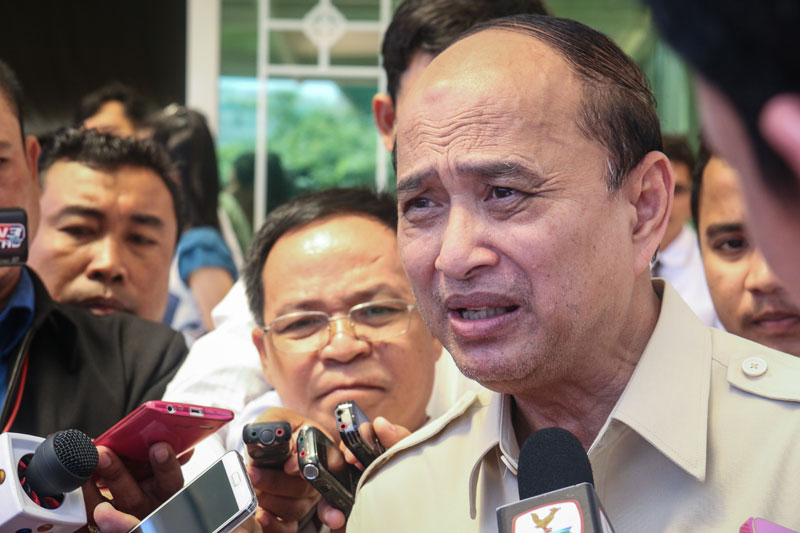A new award honoring the media’s role in combating corruption was on Wednesday presented to five local journalists, whose stories uncovering various corrupt activities show how investigative reporting can help break the shackles holding back Cambodia’s development.
Though corruption is widespread in the country, investigating it has proven risky, with more than a dozen reporters killed for their work and countless others becoming complicit.

The Award for Outstanding Reporting on Corruption in Cambodia 2015 was presented at the Himawari Hotel in Phnom Penh by the Club of Cambodian Journalists (CCJ), Transparency International (TI) Cambodia, the Information Ministry and the Anti-Corruption Unit (ACU).
During the ceremony, ACU Chairman Om Yentieng took the stage to offer a mix of practical and enigmatic advice to the journalists in attendance. He also advised TI and the media to work closely with the government due to the complex nature of a problem that was fraught with ambiguities.
“Anti-corruption [reporting] should be based on the Anti-Corruption Law,” he said, going on to offer a series of examples intended to illustrate the thorny intricacies of the law, which he said only ACU experts can properly navigate.
If journalists fail to abide by the law when reporting, Mr. Yentieng warned, they risk victimizing innocent people.
“Journalists should write a story based on the law, because if they don’t have enough evidence, they can cause damage to a person who is not guilty,” he said.
Mr. Yentieng said the goal of journalism should be to educate society, not to perpetuate its problems, and that great care should be taken to refrain from printing accusations without authenticating them. Even then, he added, some situations require facts to be withheld.
“Revealing the whole truth…is sometimes not good,” he said. “We don’t want to lie to our wives, but we know that sometimes she should not know.”
Speaking after the ceremony, Mr. Yentieng explained how he personally avoids taking bribes.
“This morning, I received a ‘present’ of a tie worth $300 and I handed it over to the Fine Council to put it up for sale,” he said, referring to an ACU body that is charged with monitoring gift-giving among officials.
“I really want this tie, so the Fine Council will charge me $299 for it so that I am able to use it,” Mr. Yentieng said.



